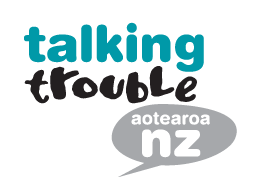The Language of Protection Orders: Hearing people’s experiences of the communication involved in protection orders
We are grateful for the grant we received from the Lynn Bevan Trust (administed by the New Zealand Family Court Association) that assisted us to complete this small research project about the communication involved in protection orders.
We often hear from people that legal language can be confusing and the expectations on people involved in legal matters aren’t always well understood. We wanted to explore these topics as they relate to protection orders as lots of people had told us they can be confusing to understand.
A small number of people who had lived experience of protection orders were approached and invited to take part in an interview in 2019. The five people who agreed to be interviewed had experience of giving or receiving information relating to protection orders:
One person with experience of applying for a protection order (Applicant).
One person with experience of having a protection order taken out against them (Respondent).
One Police Officer.
One Social Worker.
One person who had a support role for those seeking protection orders (Support Agency Worker).
The participants were encouraged to reflect on the wording of protection orders and how they are communicated to people. They were asked to comment on:
The sort of information given.
How simple or complex the information is.
Barriers to effective communication about protection orders.
What happens when people don’t fully understand the information provided.
What could be done differently.
This report highlights the key themes that emerged in the interviews, the participants’ experiences of barriers to successful communication, and their ideas about how complex legal processes could be communicated more effectively. It is hoped that the insights gathered here will be useful to academics, policy-makers and practitioners. If the experiences of the five individuals interviewed in this project are common, new practices and tools are needed. There are some quick and obvious solutions that could trialled but additional projects and research that explore the themes uncovered with larger numbers of participants would also be helpful.
We acknowledge the participants who very kindly shared their views with us. We hope this project will result in change.

